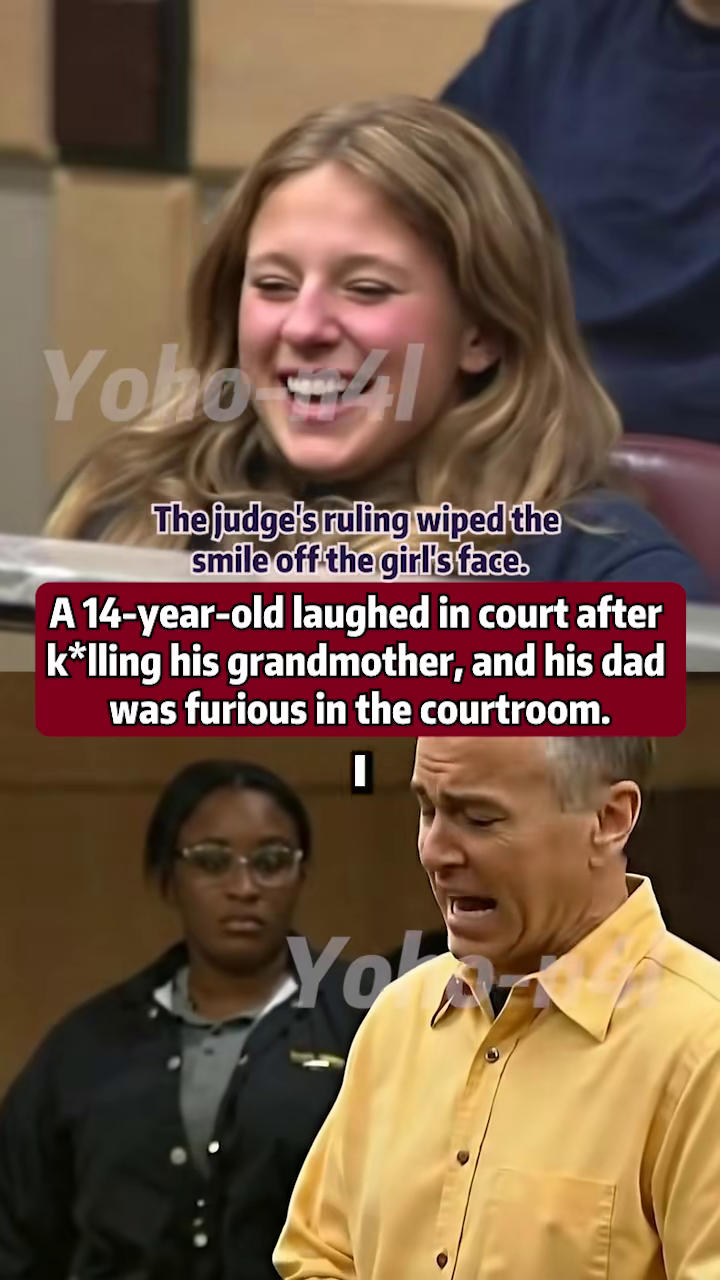In a Florida courtroom, the eyes of the public, family, and media were fixed on Sofia Koval, a 14-year-old girl charged with the bating death of her 79-year-old grandmother, Yevheniia Koval. The case immediately drew national attention due to the age of the perpetrator, the shocking nature of the crime, and Sofia’s behavior in court.
This is a story of family tension, youth in crisis, and a community grappling with the realities of violent acts committed by children.
The Crime: A Fatal Altercation
The tragic incident reportedly began after Sofia’s father, Vladimir Koval, took her cell phone away due to ongoing behavioral issues. Left alone with her grandmother, tensions escalated dramatically.
According to court documents and news reports:
-
Sofia allegedly attacked her grandmother, Yevheniia Koval, causing fatal injuries.
-
Neighbors and family described the event as sudden and shocking.
-
The act resulted in the death of a woman who had dedicated her life to caring for her family.
The circumstances highlight a dangerous mix of family conflict, behavioral problems, and unresolved anger.
Courtroom Behavior: Shock and Outrage
One of the most discussed aspects of the case was Sofia’s behavior during her court appearances. Cameras captured moments that left observers stunned:
-
She laughed during proceedings, showing apparent lack of remorse.
-
At one point, she clasped her hands as if praying and stated, according to reports, that her grandmother had forgiven her.
-
The courtroom was tense, with her father visibly furious and emotional, confronting his daughter over the tragedy.
This behavior fueled media coverage and public debate, raising questions about juvenile accountability and psychological state.
Father’s Perspective: Grief and Fury
Vladimir Koval’s response highlighted the human toll of the tragedy:
-
He expressed anger and disbelief over his daughter’s actions.
-
Reporters noted his visible emotional breakdown, reflecting the profound shock and grief of losing his mother and facing his daughter’s involvement.
-
The father emphasized his attempts to guide and discipline Sofia, but noted that the family struggled to address escalating behavioral issues.
His testimony and courtroom presence added a deeply personal and emotional dimension to the case.
Plea and Sentencing: A Juvenile Justice Approach
Sofia Koval was charged as an adult with manslaughter, reflecting the seriousness of the act. However, a plea agreement led to a maximum-risk juvenile commitment program, including:
-
Up to three years in the juvenile justice system’s maximum-risk program
-
Community supervision until age 21
This sentence reflects the justice system’s attempt to balance punishment with rehabilitation for juvenile offenders.
Additionally, because Sofia is not a U.S. citizen and had recently moved from Ukraine, she is expected to face deportation to Ukraine after completing her sentence.
Judge’s Statement: A Sobering Moment
The courtroom drama intensified when the judge addressed Sofia directly. According to reports:
-
The judge emphasized the serious consequences of violating the terms of her juvenile sentence.
-
While some videos and reports exaggerated her potential sentence as life without parole, the official sentence remained juvenile maximum-risk program.
-
Observers noted that the judge’s words wiped the smile off Sofia’s face, underscoring the gravity of the situation and the limits of leniency in the justice system.
Public Reaction: Shock, Debate, and Fear
The case of a 14-year-old bating her grandmother sparked strong reactions across social media and news platforms:
-
Many viewers expressed horror and disbelief over the age of the perpetrator.
-
Others debated the effectiveness of juvenile justice programs in handling severe acts committed by minors.
-
Discussions arose around family responsibility, parenting, and warning signs of escalating violent behavior in teenagers.
The public remains divided on whether rehabilitation or harsher punishment is the appropriate response.
Psychological and Behavioral Insights
Experts in juvenile psychology emphasize:
-
Adolescents can exhibit extreme behavior due to stress, trauma, or environmental pressures.
-
Early intervention, counseling, and parental guidance are critical to prevent escalation.
-
In Sofia’s case, behavioral issues, family tension, and sudden loss of control contributed to the tragic outcome.
Specialists argue that while the act itself is unacceptable, understanding the underlying factors is essential for preventing similar incidents.
Immigration and Deportation Implications
Sofia’s status as a recent immigrant from Ukraine adds a unique dimension:
-
After completing her juvenile sentence, she is expected to be deported to Ukraine.
-
Legal experts note that deportation of juvenile offenders is a complex process, often involving coordination between juvenile justice authorities and immigration services.
-
The international element raises questions about integration, family support, and cultural factors in juvenile behavioral cases.
Lessons and Warnings
The Sofia Koval case serves as a cautionary tale for parents, educators, and communities:
-
Early behavioral intervention is essential: Addressing issues before escalation can prevent tragedies.
-
Juvenile justice systems balance accountability with rehabilitation: Programs aim to guide teens toward reform rather than solely punishing them.
-
Family dynamics play a critical role: Parental guidance, supervision, and emotional support are vital in mitigating risks.
-
Public awareness and reporting: Neighbors, educators, and social workers must be vigilant in identifying warning signs of violent behavior.
Conclusion: A Family and Community in Shock
The case of Sofia Koval and Yevheniia Koval is one of heartbreak, shock, and intense public interest. It illustrates:
-
How a young life in crisis can spiral into tragedy
-
The complexities of juvenile crime and accountability
-
The emotional devastation experienced by families facing internal violence
While Sofia serves her sentence in a juvenile program, the story leaves lasting lessons for parents, policymakers, and society. It is a stark reminder that even in families, conflict and unchecked behavior can have devastating consequences.
The courtroom drama, combined with media coverage, ensures this story will remain a reference point for discussions on juvenile crime, family responsibility, and the challenges of raising adolescents in a modern world.

